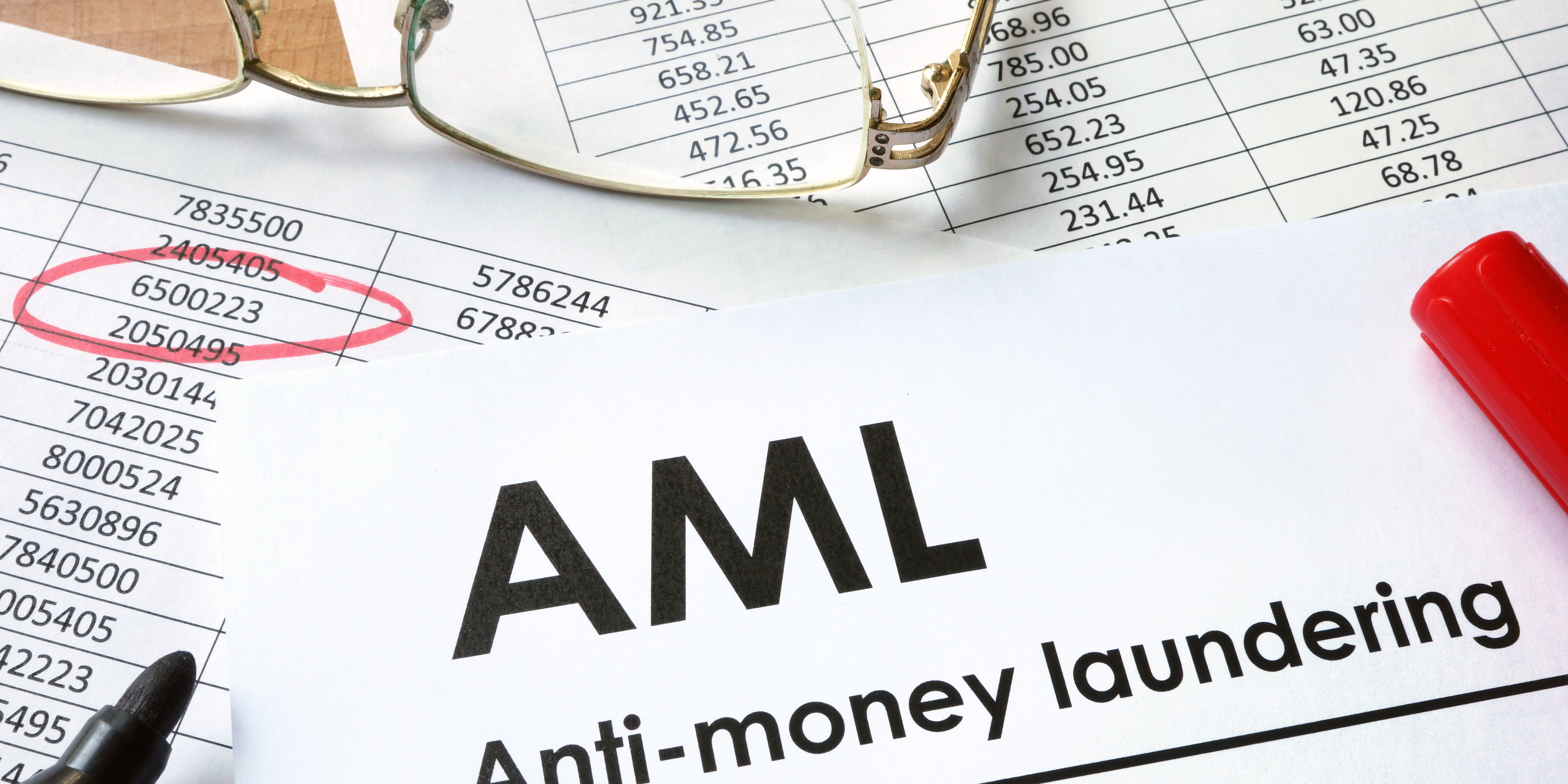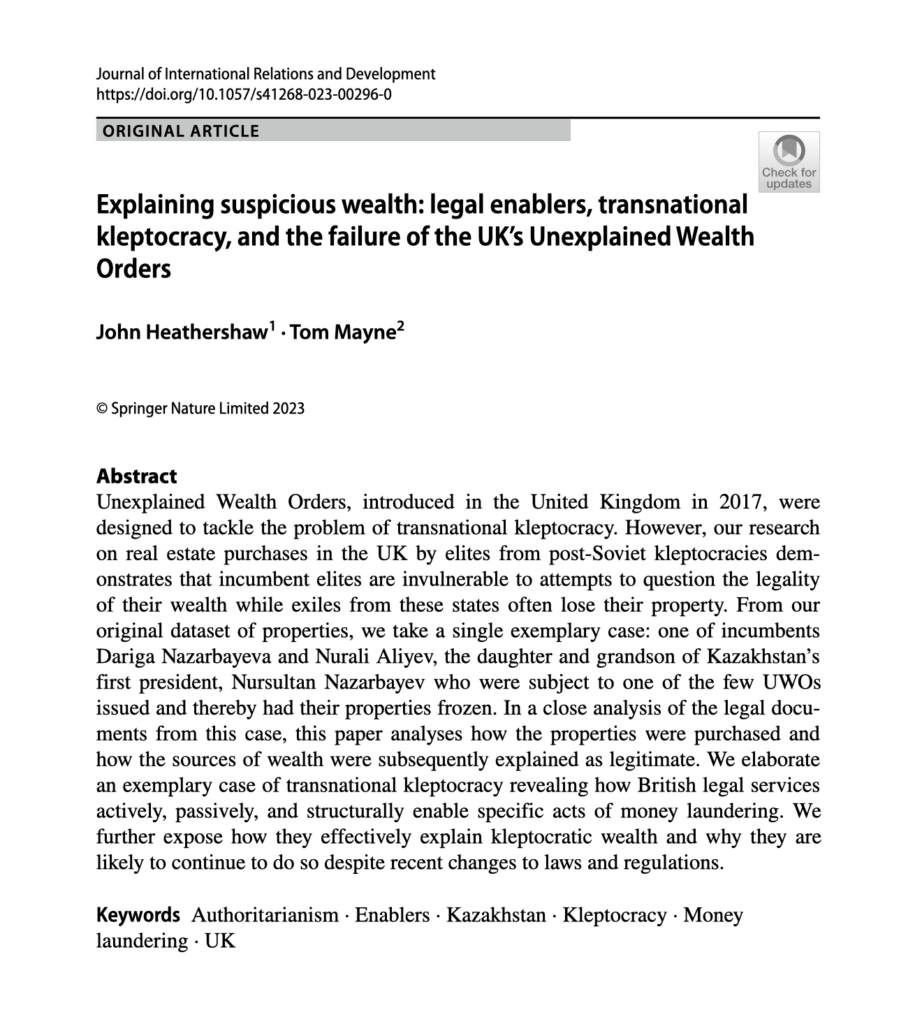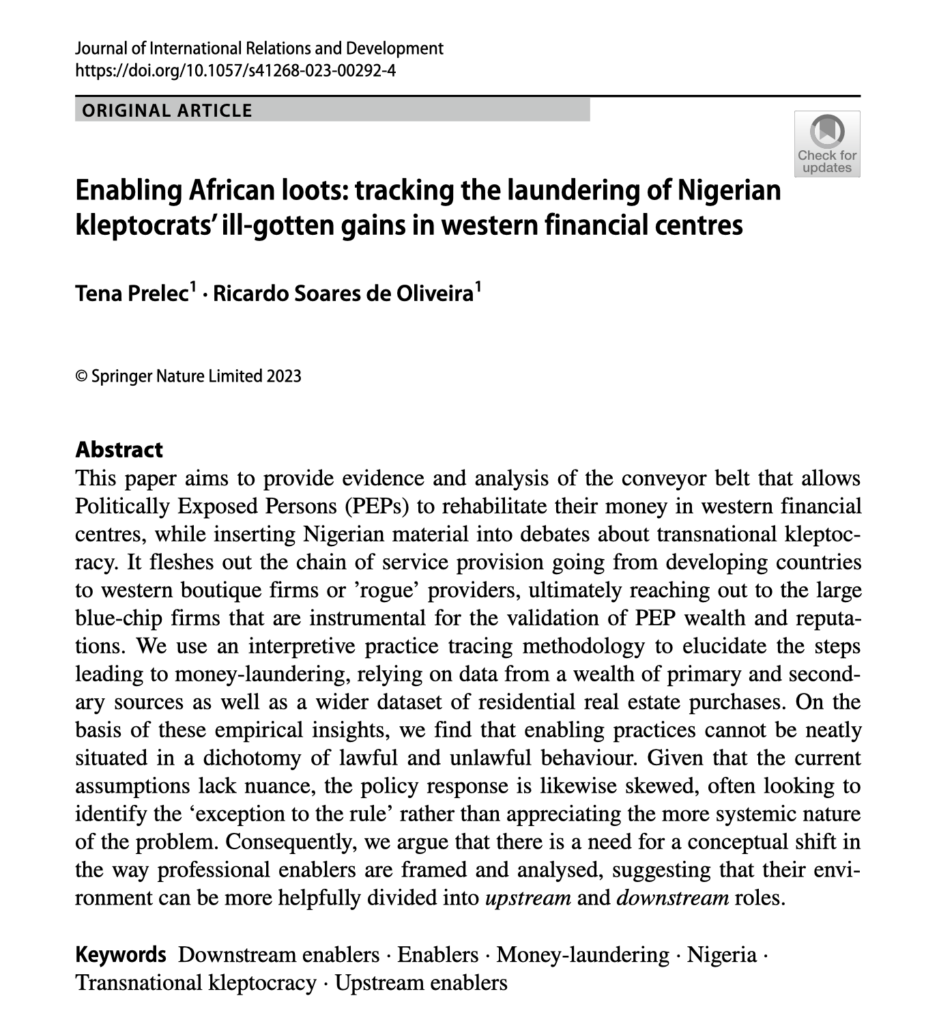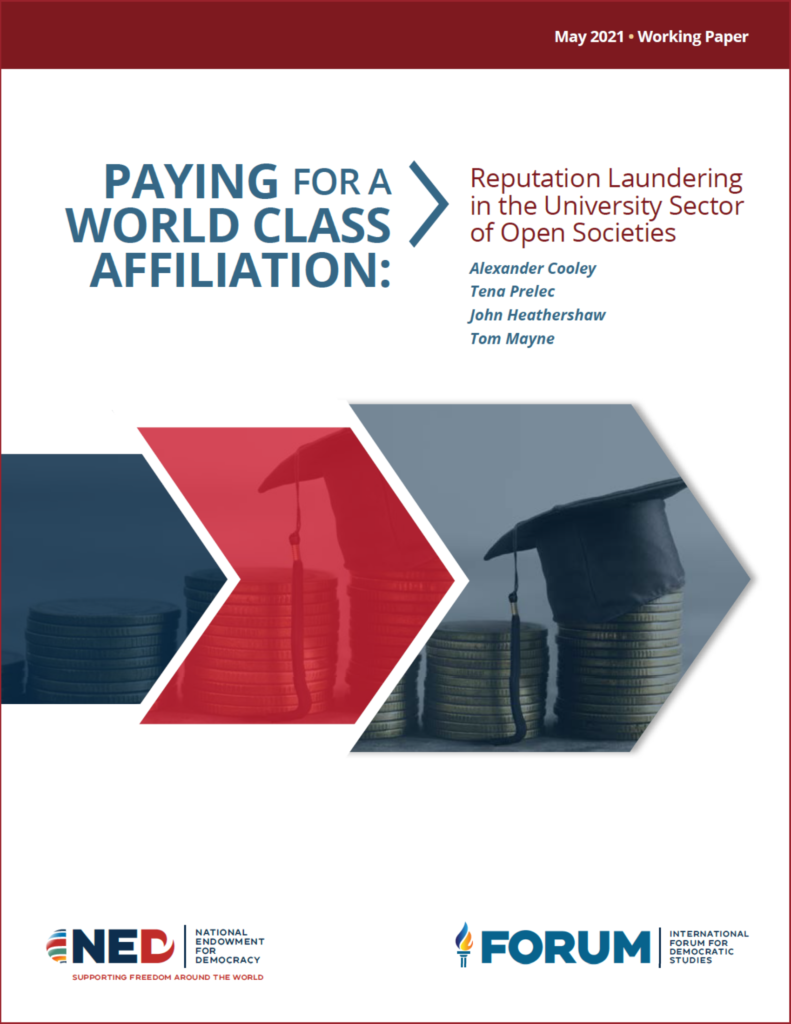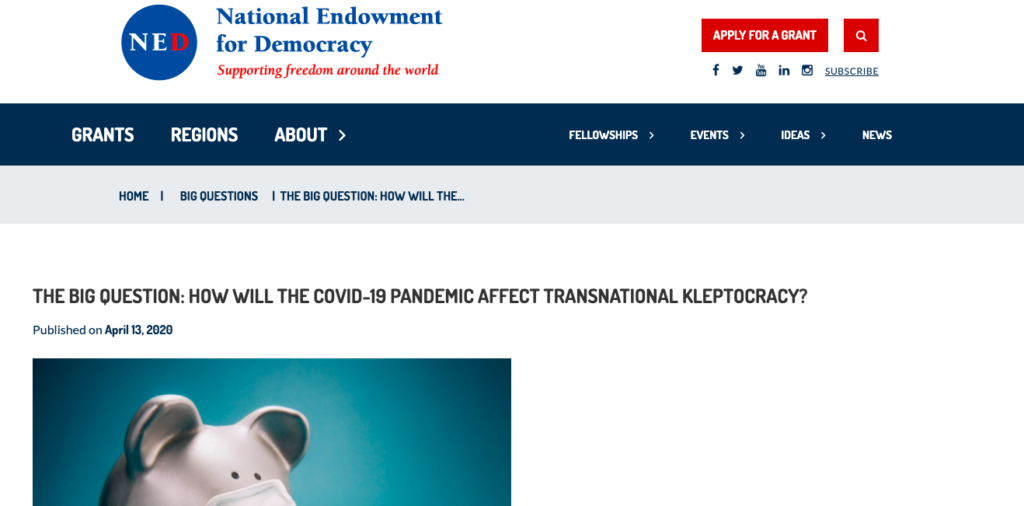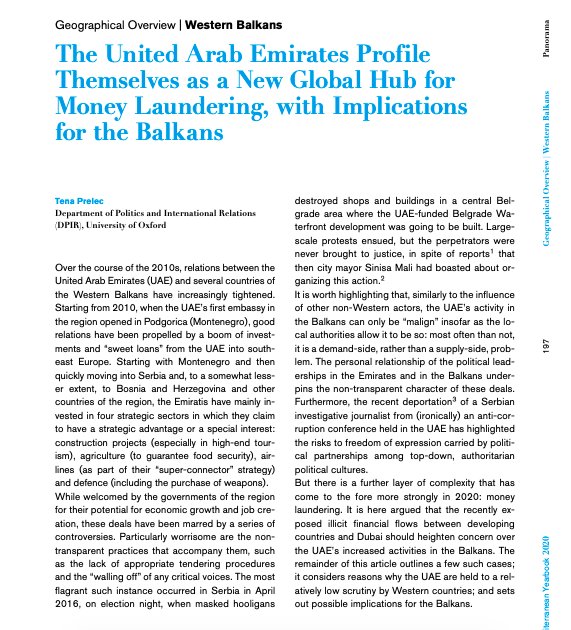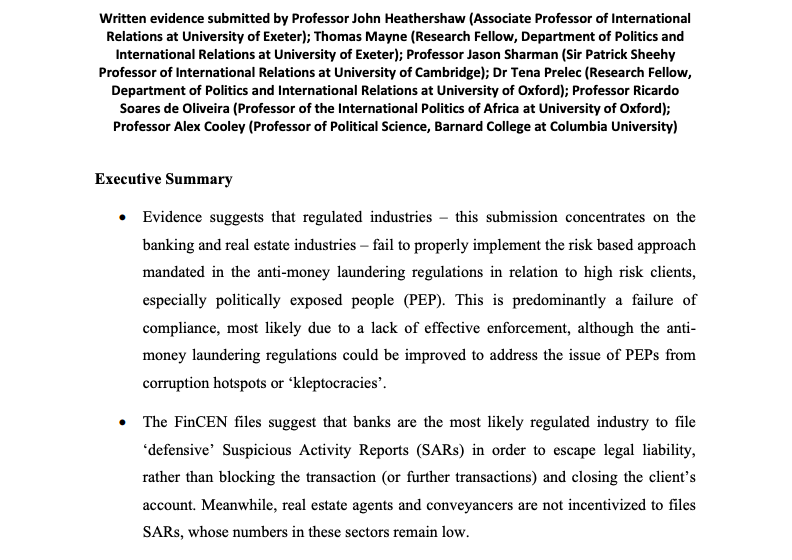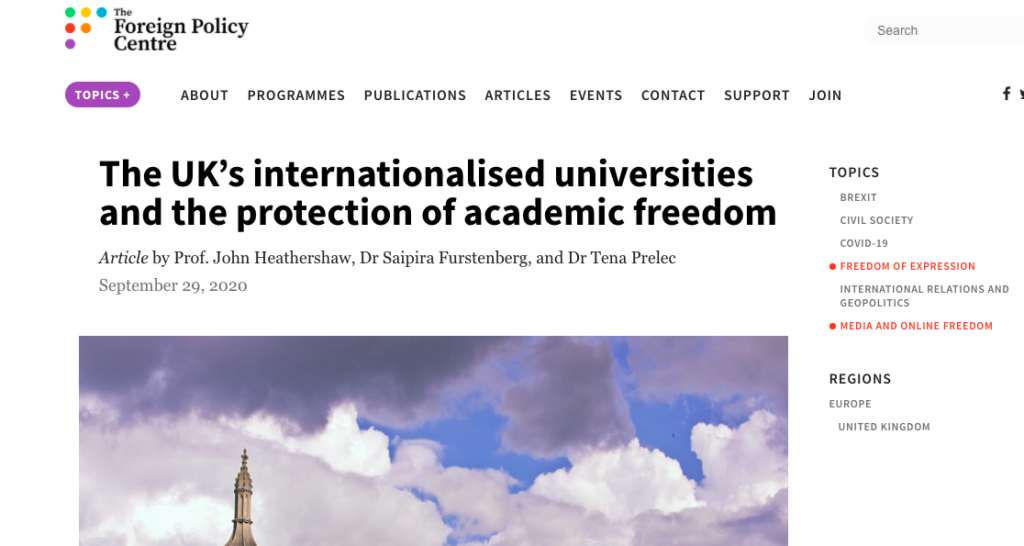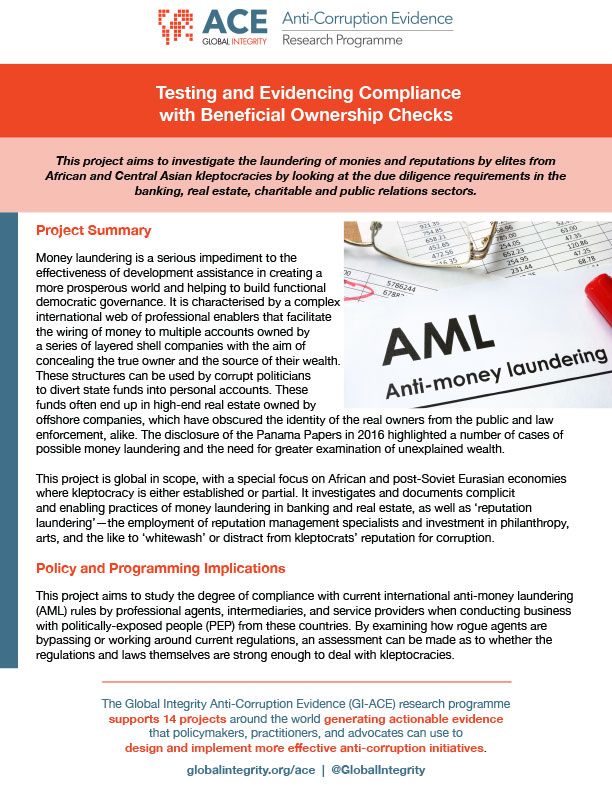Testing and evidencing compliance with beneficial ownership checks
This project aims to investigate the laundering of monies and reputations by elites from African and Central Asian kleptocracies by looking at the due diligence requirements in the banking, real estate, charitable and public relations sectors.
Click here for the Project One-Pager
To learn more about this project, contact Principal Investigator John Heathershaw.
Project Summary
Money laundering is a serious impediment to the effectiveness of development assistance in creating a more prosperous world and helping to build functional democratic governance. It is characterised by a complex international web of professional enablers that facilitate the wiring of money to multiple accounts owned by a series of layered shell companies with the aim of concealing the true owner and the source of their wealth. These structures can be used by corrupt politicians to divert state funds into personal accounts. These funds often end up in high-end real estate owned by offshore companies, which have obscured the identity of the real owners from the public and law enforcement, alike. The disclosure of the Panama Papers in 2016 highlighted a number of cases of possible money laundering and the need for greater examination of unexplained wealth.
This project is global in scope, with a special focus on African and post-Soviet Eurasian economies where kleptocracy is either established or partial. It investigates and documents complicit and enabling practices of money laundering in banking and real estate, as well as ‘reputation laundering’—the employment of reputation management specialists and investment in philanthropy, arts, and the like to ‘whitewash’ or distract from kleptocrats’ reputation for corruption.
Policy and Programming Implications
This project aims to study the degree of compliance with current international anti-money laundering (AML) rules by professional agents, intermediaries, and service providers when conducting business with politically-exposed people (PEP) from these countries. By examining how rogue agents are bypassing or working around current regulations, an assessment can be made as to whether the regulations and laws themselves are strong enough to deal with kleptocracies.
Research Questions
- Are current anti-money laundering regulations strong enough to prevent corrupt politically-exposed people from laundering the proceeds of corruption into European / American bank accounts and real estate?
- How are the enablers of such corruption (rogue bank officials, real estate agents, and lawyers) bypassing or working around current laws and regulations regarding due diligence on the source of funds?
- Does there need to be more regulation regarding (a) charitable donations and the funding of universities, arts, and sports events; and (b) the public relations companies that help ‘launder’ their clients’ dubious reputations?
Methodology
The project aims to collect examples of real estate purchased by PEPs from Africa and Central Asia in the United Kingdom and elsewhere. From this list, we hope to be able to identify complicit and enabling practices of money laundering in banking and real estate by specifying non-compliance with AML rules.
Due to the secrecy of the inner workings of such deals, we will be interviewing practitioners and other groups in order to get their opinion on the regulations and the challenges they face. We also hope to detail several case studies of reputation laundering by Central Asian and African elites with respect to philanthropic investments in public institutions and, accompanying these investments, reputation management, with attention again to complicit and enabling practices by professional intermediaries. The project also includes a field experiment, which tests banks’ adherence to beneficial ownership checks when setting up accounts on behalf of shell companies.
Research Team Members
- John Heathershaw, Professor of International Relations, University of Exeter
- Alex Cooley, Director, Harriman Institute, Columbia University; Claire Tow Professor of Political Science, Barnard College
- Jason Sharman, Professor of International Relations, University of Cambridge
- David Lewis, Associate Professor of Politics, University of Exeter
- Ricardo Soares de Oliveira, Professor of the International Politics of Africa, University of Oxford

